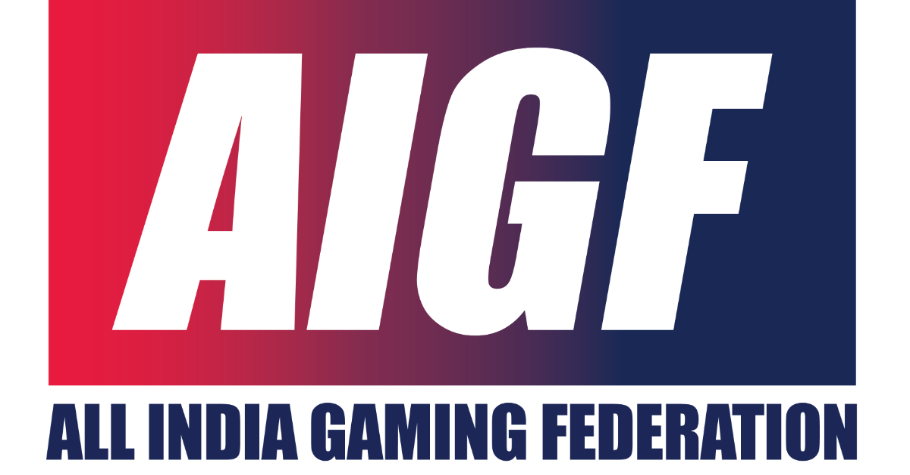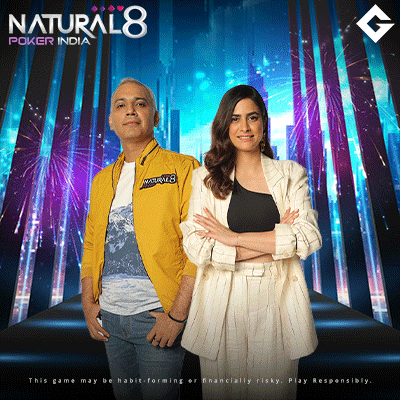 Gaming
Gaming
Untwining The Legal Maze Of Indian Online Gaming With Rachna Shroff
On 6th April 2023, the Ministry of Electronics and Information Technology (MeiTy) brought a new law with a structured amendment which will be known as the Information Technology (Intermediary Guidelines and Digital Media Ethics Code) Amendment Rules, 2023.
The new law defines online games as ‘a game that is offered on the Internet and is accessible by a user through a computer resource or an intermediary.’ This new definition clears the air about online gaming’s association with words such as deposit and winning. This revolutionary move comes after years of panel discussions, and consultations with various stakeholders and policymakers.
To understand this new law and the legality of the Indian gaming sector as a whole, we got in touch with Rachna Shroff, a lawyer specialising in the gaming and technology domain. Shroff has served as an active in-house counsel, and as a gaming lawyer in one of India’s top real money gaming companies for five years. Currently, apart from rendering legal services in the gaming field, this soft-spoken yet impactful personality also educates and mentors young law aspirants.

Rachna Shroff
You’ve probably heard and read this a thousand times now, and here we reiterate it once again. ‘Gaming is a niche in India.’ Naturally, the number of professionals is also limited. We asked Shroff what it is like to be a professional lawyer in India and how gaming specialisation is different in the legal field. She says, “I would like to tell you that gaming laws are a part of technology laws, and today, it is all digital out there. Online gaming is one of the most upcoming sectors in technology, and it is here to stay. It is very different to do a specialisation in gaming from any other field because it is something which is very dynamic, full of enthusiasm, and it takes your total attention. Today, when you think about gaming, and you think about law, the first thing is that you feel a wow factor. As with time, you get deeper into the laws that are associated with gaming, you understand that you are not just only studying for a niche sector, which is booming in India, but you also understand that you are opening yourself to the world of technology laws, and mind you, they are the most sought after lawyers in today’s world!
Shroff further shares that with every other platform that has turned tech after the COVID-19 times, technology lawyers have become the need of the hour. The industry has a sea of opportunities for legal professionals. As one studies gaming laws, they are also exposed to every law there is related to technology, and that can enable professionals to work in FinTech, EdTech, and other tech industries in the world. “Then the world is your oyster,” she says.
ALSO READ: AIGF Lauds MeitY For Bringing Regulatory Clarity Through Online Gaming Rules
Talking about the new law, she says, “I think this is the biggest move that can happen in the history of the gaming industry and the entire industry is rejoicing. There has been a lot of hard work behind it in the last six-seven years. While I was working as an in-house counsel previously for a gaming company, we were repeatedly representing different governmental agencies, and think tanks explaining the operations, processes and procedures to show the mechanism, or maybe so-called behind-the-scenes, proved it to be a game of skill and it deserves recognition. In the era of smartphones, 5G, and the internet, if gaming would have not been recognised, it would have been a major setback for this industry to contribute towards making India a one Trillion economy, but with the progressive mindset of the Government of India. We have the IT Rules amended under the IT Act 2000 recognising online gaming, we cannot be happier than before.”
Shroff further adds that ‘there are quite a few things which have been stated in the new law that will be very helpful in nature. The government has proposed the creation of a self-regulatory body for the gaming industry. The Ministry of Electronics and Information Technology will be overlooking it. These self-regulatory bodies will be verifying the games and permitting the games to operate. All these companies had already been following quite a few of these guidelines as set out under Rules 3 and 4 of the IT Rules which are a part of the compliance, be it terms and conditions, privacy policy, fair play responsible gaming, or taxation policies. A few changes which will come into action are in relation to the KYC procedure where the KYC has to be done at the very initial stage when a player comes in at the very inception rather than at the time of first withdrawal. Although it might look a little heavy on the industry side, it’s a welcome move, because this will bring a lot of transparency and conform to the vision of a safe internet for the public at large.
The debate between online games being games of skill or games of chance has been a never-ending one for years now. We asked Shroff what she as an active practitioner thinks about this, to which she says, “First of all, I would like to see that debate is healthy, it leads to very fruitful outcomes. And that’s why I believe that online gaming has been recognized under a central piece of legislation. But, at the same time, it’s concerning to see that, though there have been precedents, there have been Supreme Court judgments, which have clearly set the dominant factor test. It has stated that there should be a preponderance of skill over chance, the same is ignored and has led to multiple bans.”
Shroff lays emphasis on how one should play responsibly while indulging in online games saying, “Any kind of gaming is in your hands in the sense that they can control it, whenever needed. And for that, I do not believe any gaming platform should be held solely responsible. It should be the human tendency to control itself wherever needed, right? You know, where are you putting your money? You should also know, where you should stop putting your money.”
She explains how companies are ensuring responsible gaming saying, “Moreso, these gaming websites have set in the mechanism where you can set in your limits for deposits, and time you spend playing and they’ve also set limits where you can completely self-exclude yourself or request the customer care to completely ban you if you think it’s taking a toll on you. You can even seek counselling if so be the case. I would state that the companies are doing a fair job by creating the much-needed policies and mechanisms and serving to their optimum. So I believe that the to and fro and the back and forth have finally led to this gaming being recognised. And we don’t mind such back and forth as long as it’s helping the industry grow.”
Talking about how the industry is reacting to the new law, Shroff shares, “The industry is very happy, everybody is rejoicing, of course, however, we are looking for some more clarity in some areas, such as, how many SROs are going to be there, how would the games be verified. Will the state laws be applicable and so on and so forth? However, I believe that with time clarity will dawn but at the moment, the recognition is really applauded and appreciated by the industry.”
ALSO READ: Online Gaming Looking At A Black Friday In India?
We asked her how the Indian gaming sector is still lacking as compared to the gaming laws that exist in Western countries, and how much it has progressed in terms of its legality in recent times. To this, she answers, “It has really progressed in terms of legality, for instance, where earlier the games were not recognised on the PlayStore last year, Google Play Store allowed it, as a pilot project to see the response. The revenues for the gaming industry have doubled. I hope this continues for a long period of time. And it will be a great revenue model for both sides.”
“Prior to this the setting up of the inter-ministerial Task Force, which said that there should be a piece of legislation, there should be a nodal ministry, because of which MeiTy was accorded the status of the nodal ministry for gaming. It was due to this nodal ministry that the amendment draft rules came into existence along with fantasy sports being recognized as a game of skill, esports has been given its separate ministry to look into. In fact, esports has been recognised under the Olympics and India is already doing so well under the esports category. I should say the gaming industry as a whole has really moved up the ladder in terms of legality,” she adds.
Shroff further emphasises how the COVID-19 pandemic helped online gaming grow, “Of course, COVID-19 was one of the reasons this industry got attention and boomed. Everybody was playing some form of a game which led to the understanding that it’s a great sector for sourcing revenue, tax generation and employment. At the same time, many PILs were filed, and bans happened, as the people at large were confused and could not distinguish between sports betting and game of skill. However, all of the above has led to great outcomes giving the industry the much-awaited standing it deserved.
We also asked her about the recent TDS that’s effective on online gaming applications, to which she enlightens us by sharing, “The TDS system under the Income Tax Act is now changed and is effective from 1st April 2023. On 1st February 2023 while announcing the union budget Nirmala Sitharaman, Finance Minister, Government of India, announced a 30% tax on the net winnings, from online gaming platforms at the end of a fiscal year. This change has ended the threshold limit of 10,000 for TDS to be deducted on each winning. That means TDS would be deducted at the end of the financial year at the end or at the time of withdrawal.”
Talking about how it will benefit, she says, “This system has brought in a lot of transparency and is a much more robust one than the previous one as it would close doors for any method of tax evasion, misreporting or under-reporting. The question might arise about what if I win on some sites and lose at some and my net winnings are zero or nil. Here the player can claim a TDS refund. This change was earlier to be brought into effect from 1st July 2023 but to avoid complications, it has been set from the start of this fiscal year. Something very interesting to note is that the new provision introduced under section 194BA clearly speaks for online gaming. A very sorted provision enabling ease of business.
The industry is undoubtedly set on a growing path. And with the growth of a niche space like online gaming which has immense potential, the need for legal consultancy and legal professionals is bound to rise. The likes of Shroff with their expertise in the domain have played a crucial and instrumental role in getting the sector on the legal map of India.
For more news and updates, keep reading Gutshot Magazine. Follow us on Facebook, Instagram, Twitter, and Telegram.

Amarylisa Gonsalves is a Content Writer at Gutshot Magazine. Advancing from a marketing background, she found her calling in writing. She takes delight in exploring genres and is a curious learner. Patient and ambivert, she believes in letting her work speak for itself. Apart from content writing, she finds solace in writing poetry by expressing herself through words. Additionally, she adores indulging in anything that satisfies her creative self, like drawing and DIY crafts.
More News
Top 15 Poker Rooms
-
WPT Global
Grab your welcome offer
Offer: 100% of your deposit back up to $3,000 Register -
PokerDangal
Sign up with code GUTSHOT1
Offer: Get 100% GST discount on deposits Register -
Natural8 India
Sign-up with Gutshot
Offer: Get extra 28% on all deposits Register -
Spartan Poker
Sign-up with referral code AFFGSMAG
Offer: FTD 50% Bonus Money up to ₹20K. Deposit code ‘ALLIN50’ Register -
Junglee Poker
Sign-up and get bonus
Offer: Up to ₹50,000* Register -
Calling Station
Sign-up with promo code 'AFFCSGUT'
Offer: 30% FTD bonus with code FTD30 Register -
WinZo Poker
Daily Winnings Up To ₹40 Crore!
Offer: Get ₹550 Joining Bonus For Free Register -
Stake Poker
Welcome bonus
Offer: 200% up to ₹120,000 Register
Newsletter
Thank you for subscribing to our newsletter.
This will close in 20 seconds

























